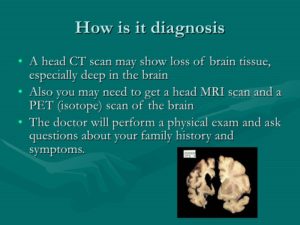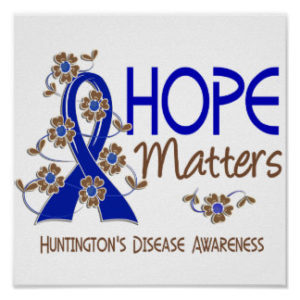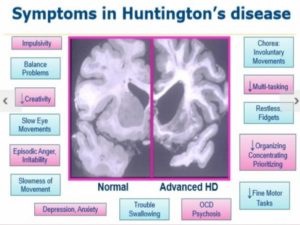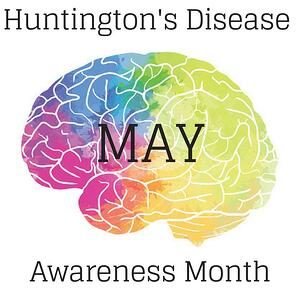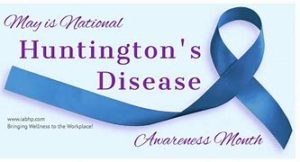
No treatments can alter the course of Huntington’s disease. But medications can lessen some symptoms of movement and psychiatric disorders. And multiple interventions can help a person adapt to changes in his or her abilities for a certain amount of time.
Medications will likely evolve over the course of the disease, depending on overall treatment goals. Also, drugs that treat some symptoms may result in side effects that worsen other symptoms. Treatment goals will be regularly reviewed and updated.
Preparing for your doctor’s appointment
If you have any signs or symptoms associated with Huntington’s disease, you’ll likely be referred to a neurologist after an initial visit to your family doctor.
A review of your symptoms, mental state, medical history and family medical history can all be important in the clinical assessment of a potential neurological disorder.
What you can do
Before your appointment, make a list that includes the following:
- Signs or symptoms — or any changes from what is normal for you — that may be causing concern
- Recent changes or stresses in your life
- All medications — including over-the-counter drugs and dietary supplements — and doses you take
- Family history of Huntington’s disease or other disorders that may cause movement disorders or psychiatric conditions
You may want a family member or friend to accompany you to your appointment. This person can provide support and offer a different perspective on the effect of symptoms on your functional abilities.
What to expect from your doctor
Your doctor is likely to ask you a number of questions, including the following:
- When did you begin experiencing symptoms?
- Have your symptoms been continuous or intermittent?
- Has anyone in your family ever been diagnosed with Huntington’s disease?
- Has anyone in your family been diagnosed with another movement disorder or psychiatric disorder?
- Are you having trouble performing work, schoolwork or daily tasks?
- Has anyone in your family died young?
- Is anyone in your family in a nursing home?
- Is anyone in your family fidgety or moving all the time?
- Have you noticed a change in your general mood?
- Do you feel sad all of the time?
- Have you ever thought about suicide?
Medications used for Huntington’s Disease
Medications for movement disorders
Drugs to treat movement disorders include the following:
- Drugs to control movement include tetrabenazine (Xenazine) and deutetrabenazine (Austedo), which have been specifically approved by the Food and Drug Administration to suppress the involuntary jerking and writhing movements (chorea) associated with Huntington’s disease. These drugs don’t have any effect on the progression of the disease, however. Possible side effects include drowsiness, restlessness, and the risk of worsening or triggering depression or other psychiatric conditions.
- Antipsychotic drugs, such as haloperidol (Haldol) and fluphenazine, have a side effect of suppressing movements. Therefore, they may be beneficial in treating chorea. However, these drugs may worsen involuntary contractions (dystonia), restlessness and drowsiness.Other drugs, such as risperidone (Risperdal), olanzapine (Zyprexa) and quetiapine (Seroquel), may have fewer side effects but still should be used with caution, as they may also worsen symptoms.
- Other medications that may help suppress chorea include amantadine (Gocovri ER, Osmolex ER), levetiracetam (Keppra, Elepsia XR, Spritam) and clonazepam (Klonopin). However, side effects may limit their use.
Medications for psychiatric disorders
Medications to treat psychiatric disorders will vary depending on the disorders and symptoms. Possible treatments include the following:
- Antidepressants include such drugs as citalopram (Celexa), escitalopram (Lexapro), fluoxetine (Prozac, Sarafem) and sertraline (Zoloft). These drugs may also have some effect on treating obsessive-compulsive disorder. Side effects may include nausea, diarrhea, drowsiness and low blood pressure.
- Antipsychotic drugs such as quetiapine (Seroquel), risperidone (Risperdal) and olanzapine (Zyprexa) may suppress violent outbursts, agitation, and other symptoms of mood disorders or psychosis. However, these drugs may cause different movement disorders themselves.
- Mood-stabilizing drugs that can help prevent the highs and lows associated with bipolar disorder include anticonvulsants, such as divalproex (Depakote), carbamazepine (Carbatrol, Epitol, others) and lamotrigine (Lamictal).
Types of therapies for Huntington’s Disease
Psychotherapy
A psychotherapist — a psychiatrist, psychologist or clinical social worker — can provide talk therapy to help with behavioral problems, develop coping strategies, manage expectations during progression of the disease and facilitate effective communication among family members.
Speech therapy
Huntington’s disease can significantly impair control of muscles of the mouth and throat that are essential for speech, eating and swallowing. A speech therapist can help improve your ability to speak clearly or teach you to use communication devices — such as a board covered with pictures of everyday items and activities. Speech therapists can also address difficulties with muscles used in eating and swallowing.
Physical therapy
A physical therapist can teach you appropriate and safe exercises that enhance strength, flexibility, balance and coordination. These exercises can help maintain mobility as long as possible and may reduce the risk of falls.
Instruction on appropriate posture and the use of supports to improve posture may help lessen the severity of some movement problems.
When the use of a walker or wheelchair is required, the physical therapist can provide instruction on appropriate use of the device and posture. Also, exercise regimens can be adapted to suit the new level of mobility.
Occupational therapy
An occupational therapist can assist the person with Huntington’s disease, family members and caregivers on the use of assistive devices that improve functional abilities. These strategies may include:
- Handrails at home
- Assistive devices for activities such as bathing and dressing
- Eating and drinking utensils adapted for people with limited fine motor skills
Lifestyle and home remedies
Managing Huntington’s disease is demanding on the person with the disorder, family members and other in-home caregivers. As the disease progresses, the person will become more dependent on caregivers. A number of issues will need to be addressed, and strategies to cope with them will evolve.
Eating and nutrition
Factors regarding eating and nutrition include the following:
- Difficulty maintaining a healthy body weight. Difficulty eating, higher caloric needs due to physical exertion or unknown metabolic problems may be the cause. To get adequate nutrition, you may need to eat more than three meals a day or use dietary supplements.
- Difficulty with chewing, swallowing and fine motor skills. These problems can limit the amount of food you eat and increase the risk of choking. Problems may be minimized by removing distractions during a meal and selecting foods that are easier to eat. Utensils designed for people with limited fine motor skills and covered cups with straws or drinking spouts also can help.
Eventually, a person with Huntington’s disease will need assistance with eating and drinking.
Managing cognitive and psychiatric disorders
Family and caregivers can help create an environment that may help a person with Huntington’s disease avoid stressors and manage cognitive and behavioral challenges. These strategies include:
- Using calendars and schedules to help keep a regular routine
- Initiating tasks with reminders or assistance
- Prioritizing or organizing work or activities
- Breaking down tasks into manageable steps
- Creating an environment that is as calm, simple and structured as possible
- Identifying and avoiding stressors that can trigger outbursts, irritability, depression or other problems
- For school-age children or adolescents, consulting with school staff to develop an appropriate individual education plan
- Providing opportunities for the person to maintain social interactions and friendships as much as possible
Coping and support
A number of strategies may help people with Huntington’s disease and their families cope with the challenges of the disease.
Support services
Support services for people with Huntington’s disease and families include the following:
- Nonprofit agencies, such as the Huntington’s Disease Society of America, provide caregiver education, referrals to outside services, and support groups for people with the disease and caregivers.
- Local and state health or social service agencies may provide daytime care for people with the disease, meal assistance programs or respite for caregivers.
Planning for residential and end-of-life care
Because Huntington’s disease causes the progressive loss of function and death, it’s important to anticipate care that will be needed in the advanced stages of the disease and near the end of life. Early discussions about this type of care enable the person with Huntington’s disease to be engaged in these decisions and to communicate his or her preferences for care.
Creating legal documents that define end-of-life care can be beneficial to everyone. They empower the person with the disease, and they may help family members avoid conflict late in the disease progression. Your doctor can offer advice on the benefits and drawbacks of care options at a time when all choices can be carefully considered.
Matters that may need to be addressed include:
- Care facilities. Care in the advanced stages of the disease will likely require in-home nursing care or care in an assisted living facility or nursing home.
- Hospice care. Hospice services provide care at the end of life that helps a person approach death with as little discomfort as possible. This care also provides support and education to family members to help them understand the process of dying.
- Living wills. Living wills are legal documents that enable a person to spell out care preferences when he or she isn’t able to make decisions. For example, these directions might indicate whether or not the person wants life-sustaining interventions or aggressive treatment of an infection.
- Advance directives. These legal documents enable you to identify one or more people to make decisions on your behalf. You may create an advance directive for medical decisions or financial matters.

